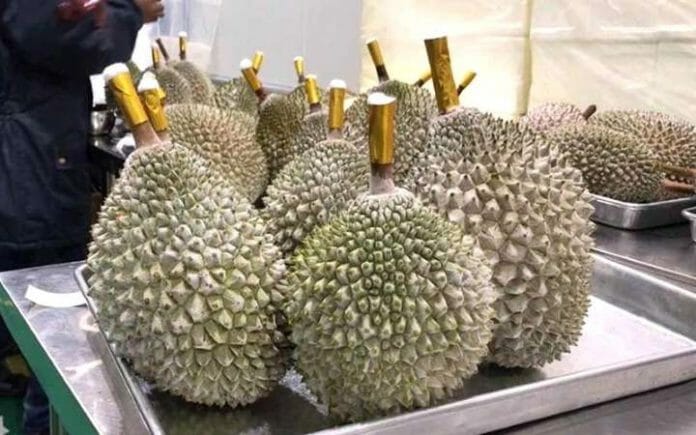With durians having entered their best season, orders for the “prickly” fruit in China have started to soar since late April, resulting in increased imports from Malaysia and Thailand, the two nations in Southeast Asia known for their quality durians.
Sales of durian have been boosted, thanks to the Regional Comprehensive Economic Partnership (RCEP) agreement, the world’s largest free trade deal to date that took effect on Jan. 1, 2022.
The RCEP countries account for roughly 30 percent of the world’s gross domestic product and population. Over 90 percent of trade in goods among approved member states will gradually be tariff-free.
“We received 100 boxes of durians, which were distributed soon after arrival. Besides community convenience stores, there are also many individual customers,” said Huang Meixia with a subsidiary of Charoen Pokphand Group in south China’s Guangxi Zhuang Autonomous Region. Charoen Pokphand Group is a leading agribusiness conglomerate in Thailand.
Huang noted that compared with the same period of last year, the durians are selling well despite a price increase this year.
Durians have conquered the taste of an increasing number of foodies across China. In 2021, the import volume of fresh durians was four times that of 2017.
In Guangxi, more investment is being poured into infrastructure and cold-chain logistics to facilitate cross-border fresh fruit trade.
“It takes only two to three hours for the durians to fly from Thailand to China. Their shells are still turquoise when they appear on the Chinese market, indicating their freshness,” Wei said.
Guangxi’s Qinzhou Port has opened several direct container routes, the fruit express line from Laem Chabang to Qinzhou runs four times a week, and the fruits can reach China in about three to four days.
Durians from Malaysia have their own following in China, varieties like the Musang King, Red Prawn, XO, and Black Pearl are uniquely Malaysian and have distinctive tastes. Demand has been so overwhelming that no supplier can keep up, with RCEP the import is definitely going to increase and local industry should be wary of the potential.
Chinese and Malaysian enterprises have recently signed 11 agreements to promote investment and strategic cooperation in cross-border trade, among which the trade of durians has become the focus of attention.
Malaysian Deputy Minister of International Trade and Industry Lim Ban Hong said that the RCEP would bring considerable cooperation opportunities to enterprises from both Guangxi and Malaysia. He hopes that under the RCEP, China and Malaysia can establish closer economic and trade cooperation









